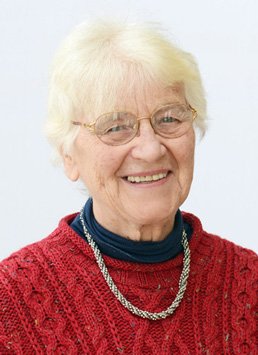Society for the Study of Women Philosophers, Inc.
a non-profit, tax-exempt educational charity 501(c)3 Internal Revenue Code
Ban Zhao / Pan Chou
45-120
Confucian Feminism & Ethics
|
Kate Lindemann's Women Philosophers pages |
 |
Remember!! Your purchase of books by clicking on Abe Books or Amazon links through this site earns us a small commission that is used to provide travel scholarships. |
This Philosopher is featured in Busted!! DVD Volume 1, available with membership at the level of Philosopher-Queen and Salon.
Pan Chou (Ban Zhao) was born in the first century of the common era into a noble Chinese scholarly family. Her father, Pan Piao (Ban Biao) was a well known Confucian scholar. She had at least one brother, Pan Ku.
Little is known of her early life but she tells us that her father instructed her in scholarship and her mother in culture. Hers was a family in which there was a tradition of education for women. Among her ancestors was Palace Lady Ban, a well known scholar in her day.
Growing up Pan Chou (Ban Zhao) studied Confucian texts and history as well as astronomy and geography.
At age 14 she married and her marriage was a happy one but her husband died young and she raised their son alone.
In 92 CE the general under whom her brother was serving, launched a failed revolt against the Emperor. Her brother was jailed. He later died in prison.
During his lifetime he had been working on The Book of Han which he intended to be a complete history of the Western Han era.
Upon the command of the Emperor, Pan Chou (Ban Zhao) took up the work and finished it. the book became the equivalent of a 'best seller'. Historically it stands as China's first complete dynastic history.
Two sections that she authored, Catalogue of Official Ranks and The Almanac became very popular but she never took personal credit - always passing praise on to her dead brother.
This work, The Book of Han was difficult text and she was invited to offer a series of lectures at the imperial library of Dongguan. Many scholars of the day attended these lectures.
The emperor invited her to teach the women of the court and she gave instruction in philosophy and history.
When the emperor died in 105 CE, the Empress Dowager Deng became ruler because the crown prince was too young to assume the throne. Pan Chou was her adviser. She took part in court politics.
In addition to these accomplishments Ban Zhao was a well known poet and essayist.
One of her best known works isLessons for Women an early work in the Confucian tradition. It is full of practical advice as well as applications of Confucian principles for creating harmony in the home and life. Interestingly she presents a Confucian view that indicates that both men and women, husband and wife are responsible for harmony in the home.
What is noteworthy is that she advocates education for women. As such Lessons for Women stands as an example showing that true Confucian thought is not insensitive to women.
This section about the education of girls comes at the end of Chapter II. She says:
"Yet only to teach men and not to teach women - is that not ignoring the essential relation between them? According to the "Rites" it is the rule to begin to teach children to read at the age of eight years and by the age of fifteen years they ought then to be ready for cultural training. Only why should it not be (that girls' education as well as boys' be) according to this principle?"
Bibliography of Works by Pan Chou (Ban Zhao )
The Book of Han
Lessons for Women
Poems - she wrote many poems. A few are available on line:
- Needle and Thread by Ban Zhao
- The last section of one of her poems can be found at Pan Chou
Complete works were published by Nancy Lee Swann's in 1932. Here is a review of that book Pan Chao: Foremost Woman Scholar of China
"Pan Chao" Chapter 1 in Therese Boos Dykeman, The Neglected Canon: Nine Women Philosophers". Kluwer, 1999.ISBN 0-7923-5956-9
This page was updated 10 June, 2016.
Ban Zhau/Pan Chou is one of 40 women philosophers featured in:
Busted!! A Pictorial History of Women Philosophers DVD, Volume 1 and is one of more than 100 philosophers featured in:
A Pictorial History of Women Philosophers photo album
Society for the Study of Women Philosophers